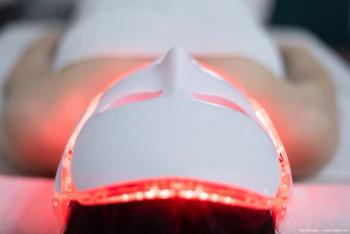
- Ophthalmology Times: September 1, 2020
- Volume 45
- Issue 14
Examining ocular allergy, quality of life
Surveyed patients express dissatisfaction with efficacy of eye drops.
This article was reviewed by Emily Schoemmell
Patients responding to a survey conducted by Ora Inc communicated general dissatisfaction with the efficacy of their eye drops.
Specifically, they said they believe that their eye drops are effective only some of the time or not at all.
The 64 respondents had participated in an ocular allergy clinical trial and were part of its database.
They were asked to respond to a questionnaire to assess the degree to which ocular allergies affect their quality of life, said Emily Schoemmell, manager, allergy, at Ora, Inc.
Related:
Survey participants, with a mean age of 50.4 years and of whom 70% were women, were residents of Massachusetts, New Hampshire, New York, and Florida. Of the total number of patients, 70% were women; 74%, Caucasian; 20%, Hispanic/Latino; and 6%, Black.
According to Schoemmell, almost 98% of respondents had nasal and ocular allergy symptoms, and smaller percentages reported experiencing other types of allergies, such as related to food (17%), skin (30%), and drug (10%).
The group’s reported symptoms are representative of national trends, Schoemmell said. She noted that 50% and 47% of patients experience nasal and ocular allergies, respectively, all year.
When broken down by season, 48% of patients have nasal (35%) and ocular (48%) symptoms in the spring compared with 0% and 2%, respectively, in the winter. “For most patients, allergies are triggered by either pollen or dust mites,” she said.
Related:
When asked to rank their top 3 complaints associated with ocular allergy, participants listed ocular itching (60%), excessive tearing or watery eyes (27%), and ocular redness (18%).
When patients were asked to rate the impact on daily activities using a scale of 0 (no problem) to 6 (extremely bothersome), many gave scores of 5 or 6. “The inability to perform outdoor activities was the top complaint,” she said.
Almost three-quarters of patients reported never seeking treatment from their physicians. Most used OTC drops for nasal and ocular allergies and judged the products to be effective some or none of the time.
The questionnaire also collected data on dry eye, for which 41% of the survey respondents reported symptoms.
Related:
According to Schoemmell, over the various periods the survey was conducted nationwide during the past 6 years, most patients said that eye drops are effective only some of the time or not at all for treating their allergy symptoms.
--
Emily Schoemmell
e:[email protected]
Schoemmell is manager, Allergy Department, at Ora Inc.
Articles in this issue
over 5 years ago
Improve patient comfort with intravitreal injectionsover 5 years ago
Stem cells for dry AMD with GA show promise in early studyover 5 years ago
Ophthalmology taking the treatment conversation onlineover 5 years ago
Astigmatism management software proving to be accurate, preciseover 5 years ago
Improving surgical safety, efficiency, and outcomes for patientsover 5 years ago
IOL offering treatment options for ophthalmologistsover 5 years ago
Unproductive worry: Conquering fear during a pandemicNewsletter
Don’t miss out—get Ophthalmology Times updates on the latest clinical advancements and expert interviews, straight to your inbox.





























